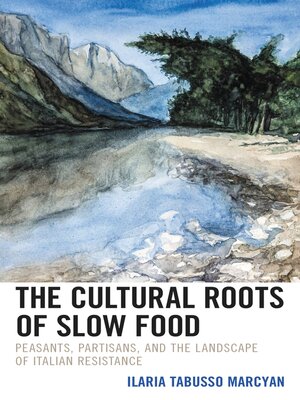The Cultural Roots of Slow Food
ebook ∣ Peasants, Partisans, and the Landscape of Italian Resistance · Ecocritical Theory and Practice
By Ilaria Tabusso Marcyan

Sign up to save your library
With an OverDrive account, you can save your favorite libraries for at-a-glance information about availability. Find out more about OverDrive accounts.
Find this title in Libby, the library reading app by OverDrive.



Search for a digital library with this title
Title found at these libraries:
| Library Name | Distance |
|---|---|
| Loading... |
The Cultural Roots of Slow Food: Peasants, Partisans, and the Landscape of Italian Resistance focuses on the work of a variety of intellectual activists, related food justice literature, and documentary films, and argues that contemporary forms of environmental activism, as they are rooted in local food and sustainable farming, are built on Italian peasant culture and its contributions to the Resistance movement during World War II.
This book looks to the hinterlands to demonstrate that peasants, by sharing their knowledge of the land and traditional practices, produce their own organic intellectuals. Some examples examined are Alcide Cervi, Nuto Revelli, and Ermanno Olmi. Ilaria Tabusso Marcyan argues that their work, personal experiences, and visions of resistance foreground the cultural roots of the Slow Food international grassroots movement. She posits that today, Slow Food and the food communities of Terra Madre in Italy and around the world represent one of the many examples of these new organic intellectuals committed to rebuild a more harmonious and sustainable relationship with the land.
This book looks to the hinterlands to demonstrate that peasants, by sharing their knowledge of the land and traditional practices, produce their own organic intellectuals. Some examples examined are Alcide Cervi, Nuto Revelli, and Ermanno Olmi. Ilaria Tabusso Marcyan argues that their work, personal experiences, and visions of resistance foreground the cultural roots of the Slow Food international grassroots movement. She posits that today, Slow Food and the food communities of Terra Madre in Italy and around the world represent one of the many examples of these new organic intellectuals committed to rebuild a more harmonious and sustainable relationship with the land.







